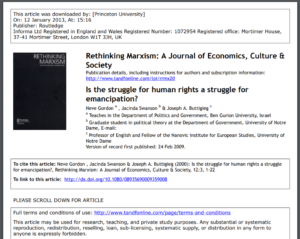
Manchurian Candidate warning… Like father like son?
The late father of presidential hopeful Pete Buttigieg was a proponent of the work of Antonio Gramsci, considered the godfather of cultural marxism.

Dr. Joseph Buttigieg served as professor of English at the University of Notre Dame, where he was a faculty member for nearly 40 years before his passing at age 71 on Jan. 27.

A founding member and president of the International Gramsci Society, Prof. Buttigieg edited and translated Antonio Gramsci’s Prison Notebooks, a manifesto on communist revolution. He was also appointed by the Italian minister of culture to a commission of experts supervising Gramsci’s complete works. His articles on Gramsci have been translated into multiple languages.
Professor Buttigieg sat on the advisory board of the journal “Rethinking Marxism,” and was an editor of “Boundary 2,” a journal that also promoted socialist thought. He also participated in the 150th anniversary of Karl Marx & Richard Engels’ Communist Manifesto, whose prose he lauded for its “poignancy.”
Father John Jenkins, controversial president of Notre Dame, praised Prof. Buttigieg after his passing.
“Joe was a superb scholar, an inspirational teacher and a pioneering leader as the inaugural director of the fledgling Hesburgh-Yusko Scholars Program,” said Jenkins.
The obituary on Notre Dame’s website acknowledges Pete Buttigieg’s “gay marriage” to partner Chasten Glezman: “Buttigieg is survived by his wife, Anne Montgomery, who was a member of the Notre Dame faculty for 29 years, and his son, Pete (Chasten Glezman), the mayor of South Bend.”
Antonio Gramsci, Godfather of Cultural Marxism
Gramsci, born in 1891, was founder and leader of the Communist Party of Italy. He’s best known for his writings from prison, when he was jailed under Benito Mussolini’s fascist regime.
Gramsci rejected violent overthrow of capitalist governments in favor of gradual revolution through communist infiltration of the culture and societal structures, implementing socialism through what his disciple Rudi Dutschke called “the long march through the institutions.” Gramsci believed changing ideology in the ruling elite — whether in media, education, courts, politics or other structures — was more powerful and enduring than bloody revolution.







